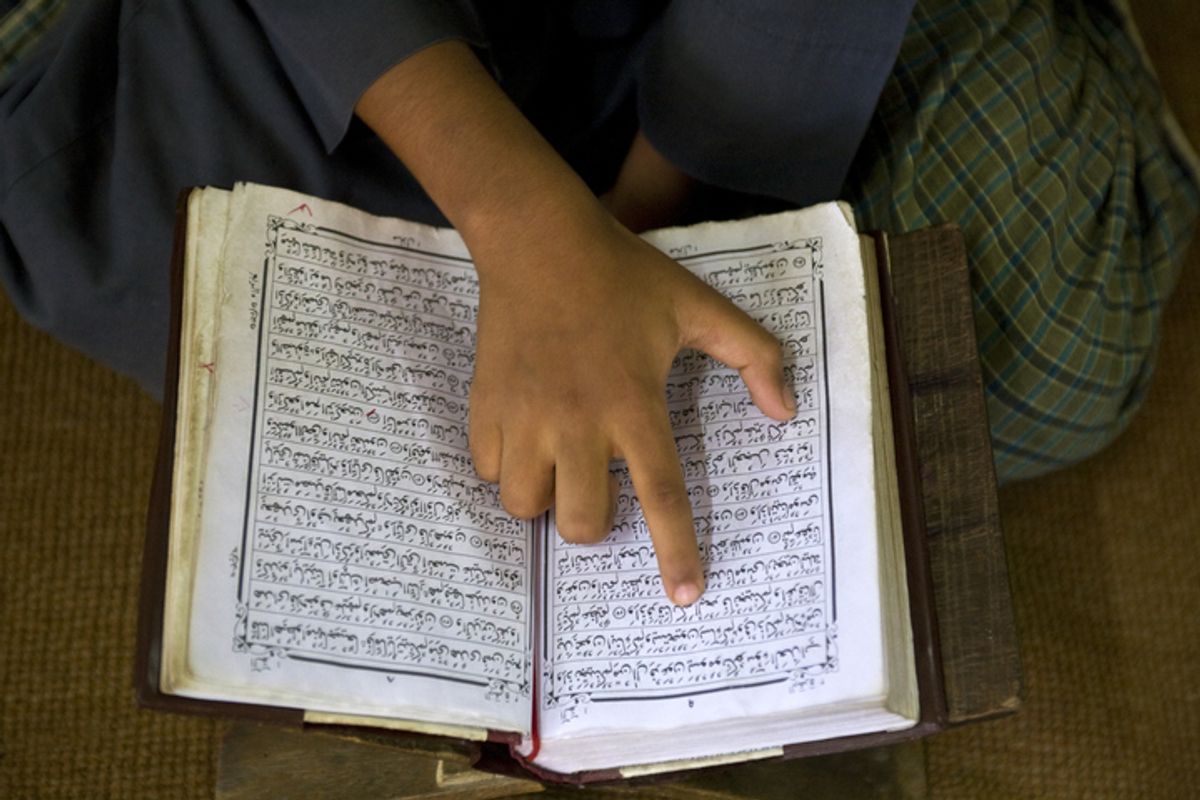On Tuesday, Oct. 10, 2023, Hamas issued a statement calling “all Palestinians, Arabs, Muslims, and free people worldwide” to “muster all your energies, and mobilize in numbers, both light and heavy, to support Jerusalem, Al-Aqsa, and the jihad waging Gaza.” The statement named Oct. 13 “a day of general mobilization … to rally support, offer aid, and participate actively … to expose the crimes of the occupation, isolate it, and foil all its aggressive schemes.
"To all scholars who teach jihad... to all who teach and learn, this is a moment for the application (of theories)," former Hamas chief Khaled Meshaal continued in his recorded statement to Reuters.
These statements (see complete translation) set into motion waves of misinformation, fear-mongering, and blatant Islamophobia online pertaining to the concept of jihad itself, which has been consistently and incorrectly oversimplified by the West to mean “holy war.”
According to Asma Afsaruddin in "The Cambridge World History of Violence," the centering of “fighting” as a concept itself in academic conversations surrounding jihad is “unduly privileged,” and she describes jihad, an Arabic word, as having a “spectrum of meanings.”
“Jihad,” or “جهاد ,” in its broadest sense, means to “struggle” or “do one’s utmost.” According to a document titled, "What is the truth about American Muslims?" compiled by the Interfaith Alliance and the Religious Freedom Education Project of the First Amendment Center, jihad can be understood in at least two ways: the “greater jihad,” involving the struggle against the lower self (to purify one’s heart, do good, avoid evil, and make oneself a better person), and the “lesser jihad,” involving the struggle against outside forces, or “any obstacle that stands in the way of the good.” This can involve fighting against oppressors and aggressors who commit injustice; however, Islamic tradition requires specific ethical conditions in place, such as the requirement “to protect non-combatants.”
Clark Lombardi, director of Islamic Legal Studies at the University of Washington School of Law, points out that Arabic words are formed out of roots composed of three letters and that “to understand the nuances tucked into the meaning of a word, you need to look not only at the way that one word was used in the Quran, but also at the way in which all its related words are used,” he wrote in an email. The word “jihad” originates from the root j-h-d, with words like “ijtihad” and “mujahid” sharing the same origins.
He also clarified that because of the “epic” amount of scholarship interpreting the teachings that were transmitted to the Prophet Muhammad, when it comes to words like “jihad,” Muslim scholars over the centuries have disagreed with each other.
“The only two groups who claim ‘jihad = Terrorism’ are Islamic State terrorists and Islamophobes with an agenda,” wrote Qasim Rashid, an author, activist, and lawyer, in The Washington Post in 2017, following backlash to the use of the word by Muslim activist Linda Sarsour in a lecture. “Both are ignorant of Islam and serve only one another.”
The Quran (2:193) teaches to, “Fight against them if they persecute you until there is no more persecution, and your devotion will be to Allah alone. If they stop persecuting you, let there be no hostility except against the aggressors.”
Rashid goes on to describe the five conditions for which “lesser jihad” is permissible: self-defense; when you are being persecuted for your faith; when you have fled your home and migrated to a different country to preserve peace; are being targeted to be killed for your faith; and in protecting universal religious freedom.
He also explains that getting a college education, quitting smoking, parenting, etc. are all examples of greater jihad. “The first and greatest form of jihad in Islam is the jihad to improve yourself and to improve all humanity.”
The word itself has been misused by extremist groups, with many early contemporary misuses rising from the era of Soviet invasion into Afghanistan. The document compiled by the aforementioned Interfaith Alliance, points out that “radical and extremist groups appropriate and misuse the term ‘jihad’ to give a religious veneer to their violent political movements and tactics.”
The use of the word jihad itself experienced a sharp uptick around 1993, then peaked in 2009 according to Google Books Ngram Viewer. Throughout the years following 9/11 and the invasion of Afghanistan and Iraq, the term was indiscriminately used by the administration of former U.S. President G. H. Bush especially, as well as across wide swaths of American media to label all terrorist activity “jihadist,” heavily contributing to the widespread misconceptions that persist today.
